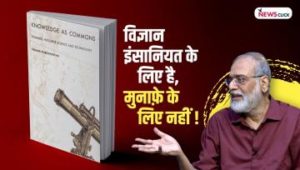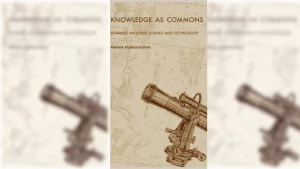
As IIT Bombay students, we are proud that this institution has now stepped in its Diamond Jubilee year and has occupied a prominent place among the other well-known institutes of learning in this world. However, invitation of Mr. Narendra Modi, the prime minister of India, as a guest of honour in the convocation of this year, has raised some concerns among several students which we would like to share with the larger body of students, academicians and people in general. We would like to question the contribution of the ruling government, whose head is PM Narendra Modi, in higher education and in other vital social issues affecting the social harmony and fundamental rights of a substantial section of the Indian population. Visit of politicians and ministers is not new for academic institutions, but, the motive behind this is also a matter of concern. whereas nobody would be stopping the Prime minister from entering the campus, or delivering his speech, there are questions, which we would like to raise here. There are the issues which affect even the privileged students in IITs as well as the other students from more neglected institutions . Such issues should at least be raised, if not addressed by the authorities.Let us begin with the question of poor public expenditure in higher education.
Expenditure of the Indian government in education is abysmally low, and it is almost negligible in higher education, compared to many other countries. Budgetary expenditure in higher education is in a steep decline for the last few years as more and more private universities are coming up and public universities are compelled to hike their fees, leading a large number of students to difficulties and forcing many out of higher education.
Public Expenditure in Higher Education in India

This ever declining public expenditure in education, is making us question the higher education policy of the ruling government, and naturally we wonder, whether Mr. Modi wants higher education for all, or whether he is promoting the Brahmanical idea of education only for a few people, belonging to upper caste and upper class backgrounds. Even out of this limited education budget, the share of the IIT’s alone is more than half. Academia in social sciences is facing acute shortage of funds. We fear, scraping of Non-NET fellowship in central universities or scraping of GOI-PMS scholarship (for SC, ST and OBC students) in TISS,are just the beginning. Further fee hike and scraping of scholarships are expected if the present system is allowed to continue. Of course, the worst sufferers would be the underprivileged students coming from non-upper caste backgrounds. Already the General Financial Rules (GFR) of the MHRD and UGC are about to be implemented in the central universities, and if these rules are implemented, a substantial expenditure of the central universities has to be raised from the fees paid by the students.This will automatically lead to fee hike. Is it wrong for us to question, what happens to the state universities? Is it wrong to think this to be an attack on the entire academic community of the country in general? Incidentally IIT Bombay has already complied with GFR and recently a massive fee hike was announced. This is true in every other institutions despite how privileged they are. Shouldn’t we ask here what happens to the students who are not able to meet this increased financial burden of higher education without economic assistance from the state? Why shouldn’t we ask that this abysmally low budget in public education be raised immediately, and education be made inclusive?
The next set of concerns obviously arises with the HECI Bill (Higher Education Committee of India Bill), which is proposed to replace the University Grants Commission (UGC), the main body regulating funds given to the institutes of higher education. Since the power to control funds will remain with the MHRD under the new act and HECI will have the power to punish or even shut down any institution which will not meet its guidelines,as researchers and students we suspect this to be an attack on the autonomy of the universities. Also without grants, the universities are expected to repay the ‘loans’ they have taken from the MHRD, which will automatically lead to further hike in fees, making the higher education spaces exclusionary for students. Already specialized centres like Centres for Study of Social Exclusion or Centres for Women studies, which deal with social exclusion and raise criticisms are dissolved in universities like JNU and TISS. HECI can regulate this to a far greater extent and totally curb the autonomies of the universities in selecting which courses they are willing to offer. Will it be wrong for us to question the prime minister why his government is hell bent on destroying the educational institutions of this country? Will it be wrong for us to ask, why the government is scared of higher education and freedom of teachers and students in selecting what they want to study?
The next very important concern is that of employment. Despite our privileged status as students of IIT Bombay, we are indeed concerned about the falling rate of employment across the country. The government has managed to create very little number of jobs over the last few years.The employment generation speed faced a six-year low in 2015 as only 135,000 new jobs were created compared to 421,000 jobs in 2014 and 419,000 in 2013, as per a quarterly industrial survey conducted by the Labour Bureau under the Labour Ministry.Jobs in the IT sector have dwindled to 1.5 lakh annual recruitments from over 3 lakh recruitments in previous years. After a survey conducted by job site Naukri.com, the report said, “The overall job market saw an 11 percent fall in new jobs, with IT-software industry most hit. IT-Software industry was hit the most with a 24 percent decline in hiring in April as compared to April 2016.” Besides,as per Labour bureau figures, India added just 1.35 lakh jobs in eight labour-intensive sectors in 2015, compared to 9.3 lakh jobs that were created in 2011. Whereas recruitment in government sector is almost negligible and employment in other sectors are falling, we are rightfully concerned about the validity of the entire ‘Make in India’ narrative and how much it actually guarantees. Without presence of any reservation for SC/ ST or OBC candidates in the private sector, more than 50 % of the Indian population with higher education, are likely to be pushed out of the job market as well. The prime minister is expected to answer for this exclusion in the employment sector.
As researchers and students, we believe that academia is not something disconnected from the society. We condemn all the hate crimes happening across the country in name of religion, caste, ethnicity and race. Somehow, the ruling government has found out a way to defend or be silent about most of such occurring. As we write this, we condemn the rape and murder women across the country, particularly of those, who were targeted because of their Dalit, tribal or Muslim identities. We question how the perpetrators of such heinous crime could get all solidarity from the ruling party. We condemn all the atrocities committed on Dalits and Muslims over the last few years in the name of religion and aggressive upper caste pride. We question how beef becomes so important an issue that living human being could be killed for it, and the murderer would get perfect impunity from the state. We question how the government could so easily decide who is a citizen and who is not on basis of their religious identities. But finally we would like to question Mr. Modi’s silence on all these issues. As a prime minister, we demand that he takes a positive stand and condemn all the hate crimes committed and supported by his party members.
Students of IIT Bombay



